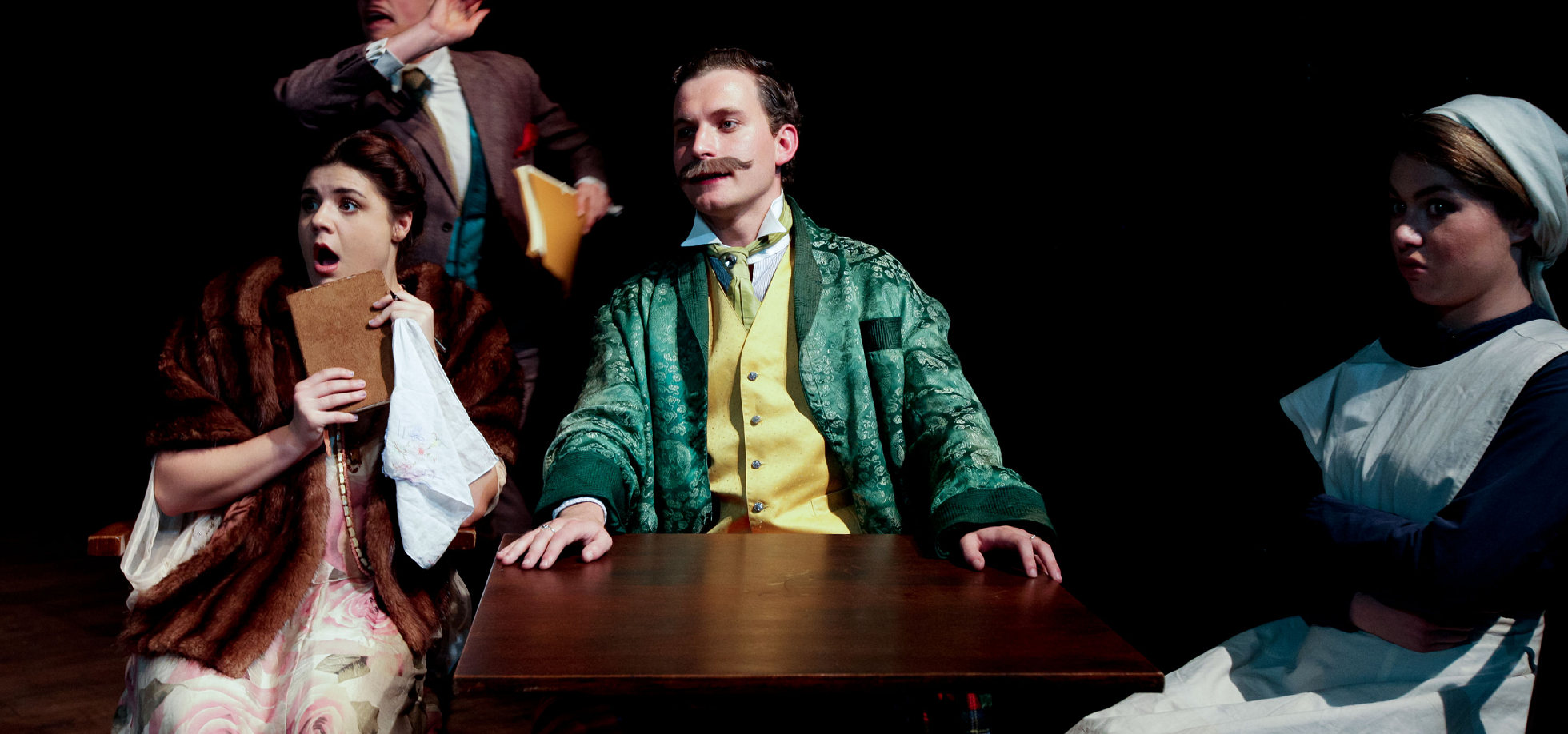
This is a compulsory technical skills training module for the MA/Postgraduate Diploma in Acting.
The aims of voice work throughout the year are divided into the following four main areas:
Voices and Choices: This element looks at the nature of accents and dialects with specific work on articulation and an examination and development of the equipment at work. Phonetics are introduced in the context of a practical environment alongside Received Pronunciation as both a "neutral" and character-based accent and as the beginnings of dialect exploration. In term two Received Pronunciation receives greater focus in connection with character and text work. Support is given to dialect work required in the Advanced Research Project.
Physical Voice: Aims to explore the relationship between posture, breath and voice with a practical focus on understanding and releasing the accumulation of habitual tensions in the body, moving into developing spine and rib flexibility and discovery of the physically and emotionally centred impulse for breath and support for sound.
Exploratory Voice: Aims to develop the students' experience of their own voice through exploring the inter-relationship between impulse, voice and emotion beyond the limitations of linguistic expression, and by exploring the resonant potential of the voice and the connections between resonance, emotional expression and vocal characterisation. In term two resonant articulation and resonant placement are key areas of development. Students begin to apply Laban to voice work to further stretch the voice beyond the confines of the habitual, and to explore and develop the musicality of expressive language, through pitch range, resonant balance, pace, volume, rhythm and cadence.
Text Work: Shakespearean speeches and sonnets are studied, exploring the writers' use of expressive language, sounds and rhythms in text and developing the student's ability to connect to that language and make it their own. Practical voice work is applied to these texts, developing the students' ability to express passion through the use of released and energised body and voice. Students explore the connections between breath and thought, rhythm and emotion, word energy and articulation and relate these elements to character. In the second term students continue to explore and develop the energy of the breath, articulation and thoughts, the flexibility of resonance and range, and the sheer intellectual and emotional power of linguistic expression through work on the texts of George Bernard Shaw and Oscar Wilde.
The aims of voice work throughout the year are divided into the following four main areas:
Voices and Choices: This element looks at the nature of accents and dialects with specific work on articulation and an examination and development of the equipment at work. Phonetics are introduced in the context of a practical environment alongside Received Pronunciation as both a "neutral" and character-based accent and as the beginnings of dialect exploration. In term two Received Pronunciation receives greater focus in connection with character and text work. Support is given to dialect work required in the Advanced Research Project.
Physical Voice: Aims to explore the relationship between posture, breath and voice with a practical focus on understanding and releasing the accumulation of habitual tensions in the body, moving into developing spine and rib flexibility and discovery of the physically and emotionally centred impulse for breath and support for sound.
Exploratory Voice: Aims to develop the students' experience of their own voice through exploring the inter-relationship between impulse, voice and emotion beyond the limitations of linguistic expression, and by exploring the resonant potential of the voice and the connections between resonance, emotional expression and vocal characterisation. In term two resonant articulation and resonant placement are key areas of development. Students begin to apply Laban to voice work to further stretch the voice beyond the confines of the habitual, and to explore and develop the musicality of expressive language, through pitch range, resonant balance, pace, volume, rhythm and cadence.
Text Work: Shakespearean speeches and sonnets are studied, exploring the writers' use of expressive language, sounds and rhythms in text and developing the student's ability to connect to that language and make it their own. Practical voice work is applied to these texts, developing the students' ability to express passion through the use of released and energised body and voice. Students explore the connections between breath and thought, rhythm and emotion, word energy and articulation and relate these elements to character. In the second term students continue to explore and develop the energy of the breath, articulation and thoughts, the flexibility of resonance and range, and the sheer intellectual and emotional power of linguistic expression through work on the texts of George Bernard Shaw and Oscar Wilde.